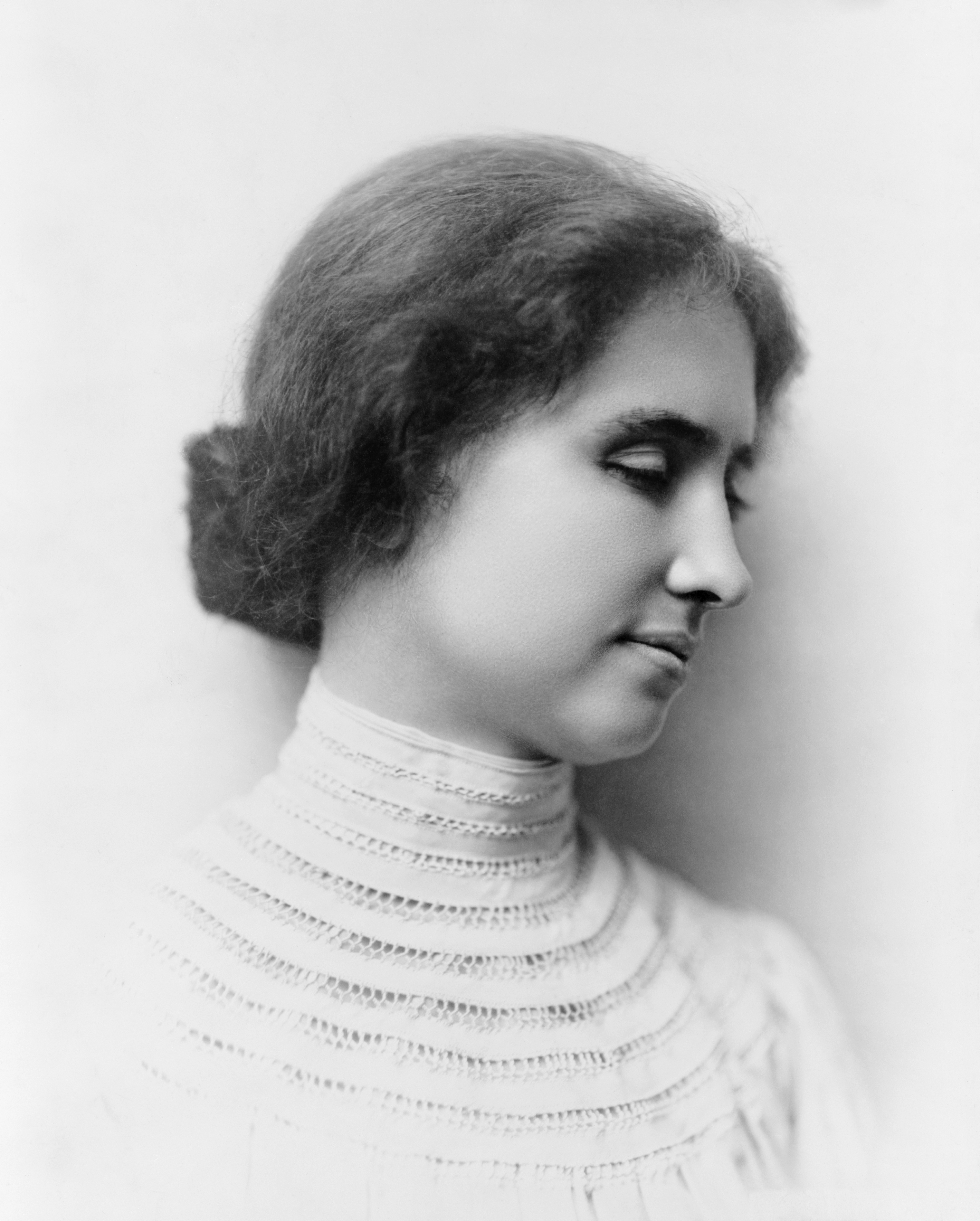 .
.
"Helen, Annie & Alec" performed on the steps of Brantford's Bell Homestead courtesy storage canoe.ca.
On the banks of the Grand River sits the Bell Homestead where Alexander Graham Bell conceived the idea for his telephone. Everybody knows Bell's connection to the telephone, but how many know his connection to Helen Keller? That was the purpose of the play we came to see, Helen, Annie & Alec mounted on the front steps of the Homestead.
Sitting on lawn chairs with dozens of other spectators, the sun setting over the trees to the west, the crickets humming in the trees along the Grand, we watched the performance unfold. Alexander Graham Bell appears in the first scene when Helen's father, Captain Keller, seeks his help in educating his blind, deaf and mute daughter, given Bell's work with the deaf. Bell immediately directs Captain Keller to the Perkins Institute for the Blind where Helen is matched up with Annie Sullivan.

Helen with "Teacher" courtesy www.biography.com.
The trademark water scene ensues with Annie pumping water into Helen's hand and furiously signing the word W-A-T-E-R. A dinner scene follows where Helen teaches Annie how to use a F-O-R-K and
K-N-I-F-E, two foreign objects to a girl who has always used her fingers to eat. The early tension between Annie and Captain Keller is resolved once he sees how much Helen has learned in such a short period of time. And that all happens within the first day. Within a month, Annie has taught Helen a staggering 400 words!
Not only Annie Sullivan but also Dr. Bell are both amazed by her rapid progress. The inventor keeps close tabs on Helen through letter writing. One day, he suggests that Helen and Annie accompany him to the World's Fair in Rochester where he will be presenting his new photophone. The women are thrilled with the invitation and eagerly oblige. Helen thrives with all of the stimulation.

Helen Keller, Annie Sullivan & Alexander Graham Bell courtesy www.pc.gc.ca.
Helen becomes a budding author and enters a writing contest with a story called "The Frost King". Annie is so proud of her young pupil and reads it for her on contest day. However, the Perkins Institute professor judging the contest accuses Helen of plagiarism comparing it to "The Frost Fairy". Annie is disgusted with the accusation and speaks her mind only to be thrown out of the judging room. She contacts Alexander Graham Bell who immediately seeks support for Helen's cause. None other than Mark Twain writes a letter lending his support to the young author. Helen excels as a student and not only completes elementary and high school, but also college, graduating with honours from Radcliffe.

Helen Keller circa 1904 courtesy en.wikipedia.org.
A late scene in the play shows Helen, a young lady by now, dancing with Dr. Bell. He tells her that if she should find love one day, to follow her heart. She reminds him that she is deaf and blind. She asks him: "Who would want a 'statue?'" Always the gentleman, Bell reminds her that she is a beautiful, intelligent woman who has a lot to offer a man. After all, he did not let the fact that Mabel Hubbard was deaf stop him from marrying her.
The second to last scene shows Alexander Graham Bell accepting a phone call in his study to say Annie Sullivan has passed away. He is devastated. A lifelong friendship has come to an end. But our happiness turns to joy when we see Helen reunited with Annie in Heaven in the final scene, her sight and hearing restored.
As darkness falls over the Bell Homestead, Helen, Annie and Alec take their bows and we rise to our feet. It is an educational evening. Who knew that Dr. Bell's kindness could equal his genius?

wordpress.com
No comments:
Post a Comment